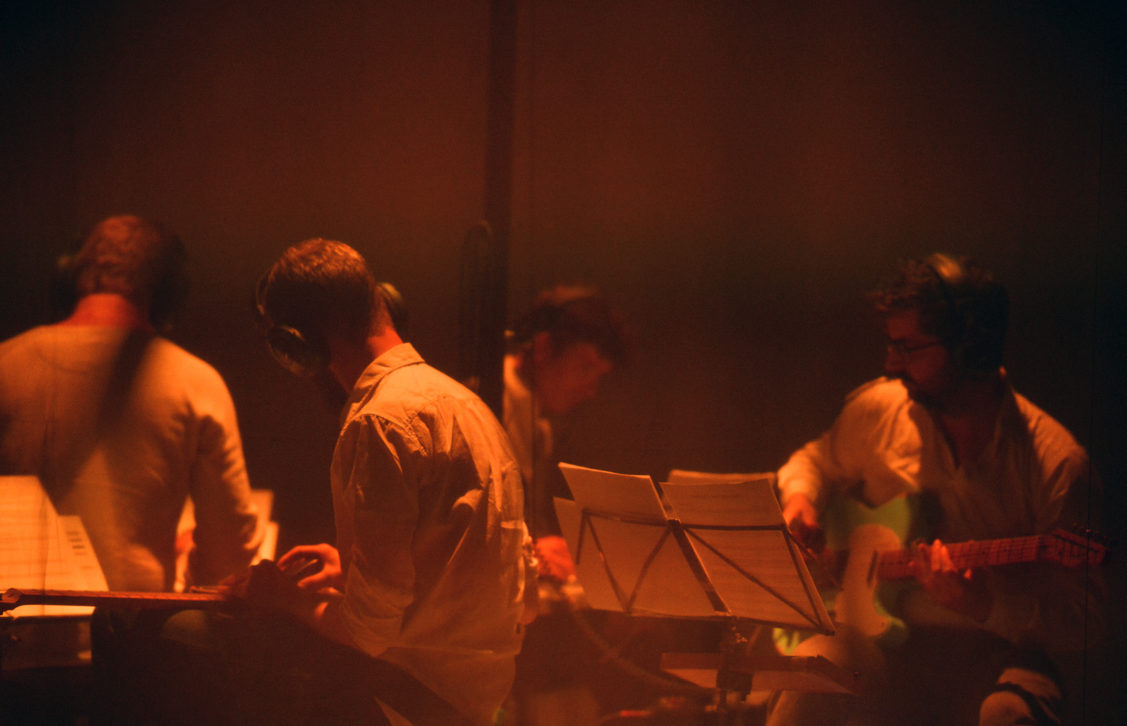Throughout history, Europe has seen numerous musical hubs; the likes of Venice, Vienna and Paris sprout and gain great significance. Over the last 40 years, one particular festival has been shifting the centre of contemporary music to one of the most unsuspecting destinations; Huddersfield.
It has been here that, for each November since 1978, innovators and lovers of music – often those of the highest acclaim, such as Karlheinz Stockhausen and John Cage – have all gathered from across the globe to experience the bending and obliterating of artistic boundaries. So with the hope of nourishing my own curiosity and taking advantage of Monday’s free events, it is the big H-U-D to which I venture.
My day begins inside the University of Huddersfield’s Phipps Hall, where Serge Vuille performs the world premiere of Christopher Fox’s ‘untouch-touch’, immediately providing a dose of the new. Vuille moves with the upmost discipline and precision through two identical series of gestures towards six gongs: the first of which avoids physical contact, but the motion of each gesture seemingly triggering sine-tones from the gongs; whereas the second involves the actual striking of the gongs. Whilst certainly innovatory, the lack of any real elaboration, any change of rhythm or combination of two gongs simultaneously, leaves the listener with the desire for something more.
Stepping out into the university’s Creative Arts Building Atrium, however, sees Philip Thomas performing a selection of piano pieces by Michael Parsons, including a performance of ‘September 2001’, joined by Parsons himself. The indeterminate rhythms and durations of the two piano parts allow each key to pierce and bleed through each other – an array of stabs and spillages of sounds – whilst each vibration diffuses throughout the entirety of the open-plan building. Yet the next piece, ‘Walk’, takes us outside onto the University of Huddersfield’s campus for a disciplined showcase of – you named it – walking. Whilst questions arise regarding whether or not this is truly a piece of music, great amusement comes in the form of bewildered faces, as oblivious students stroll past these antics; there’s almost a temptation to join in on the blank-faced scuttles and strides.

Kevin Fairbairn provides the next performance, with an array of incredibly difficult and complex pieces for the trombone, including Richard Barrett’s ‘basalt’ and Timothy McCormack’s ‘HEAVY MATTER’. The pieces themselves contain many extended and unusual techniques, but great interest comes from Fairbairn’s own design and construction of his trombone, as woodwind mouthpieces enable a new range of sounds for the brass instrument. This becomes quite apparent through the group of students in front, which laugh their way through the entire programme, triggering my own mute chuckling. But in this I find great value in HCMF’s free Monday programme, which allows an innocent audience the opportunity to watch performances on a whim and experience the peculiar hotchpotch of contemporary music and sounds never heard before – and all at Yorkshire’s favourite price!
As I take a turn into the beautiful interior of Huddersfield Town Hall, a much more enjoyable and easy-going performance comes from the Trinity Laban CoLab Ensemble, a collection of students from the Trinity Laban Conservatoire of Music and Dance. The aptly-titled ‘Urban Groove’ builds out of repetitive, yet driving, polyrhythms, allowing for enthusiastic foot-tapping and finger-clapping. The gradual process of the piece also gives space for sharp and intricate instances of contemporary dance, providing an enriching showcase of young artistic talent.

Kobe Van Cauwenberghe, too, offers satisfaction in music as a gradual process, with his live arrangement of Brian Eno and Robert Fripp’s No Pussyfooting and Evening Star. Equipped with loop pedals and two reel-to-reel tape-recorders, Cauwenberghe builds a multitude of electronic guitar layers to entice the audience into a hypnosis of swells and dives. 50 minutes can pass either in an instance or an eternity, as the mind wanders away from the sound and into a vast canyon of thought; but that is exactly what Eno would have intended, as his famous definition of ‘ambient music’ claims: “It must be as ignorable as it is interesting.”
My evening draws to a close with a bang, courtesy of the crazy and hilarious Bastard Assignments. Despite continuing the running question throughout the festival of “what is music?”, the group push it to its extremes with roars of laughter. Whilst Caitlin Rowley’s ‘Community of Objects’ grows out of instructions discovered through the unwrapping of paper boxes, interjected by chucklesome moments of sharing, an image comes to mind of a mother bearing down on her adventurous and fidgety younglings. As the performance proceeds with Timothy Cape’s ‘Wildflower’ and Josh Spear’s ‘Extended Play’, it becomes much more akin to an improv comedy show than a musical performance.
Whilst presenting an enticing marriage between musical fills and dance moves, accompanied by characters shifting with relentless energy at lightning speed, Bastard Assignments offer an exciting and playful path into experimentation, which is refreshing in such a serious musical scene.
Kieran Blyth

